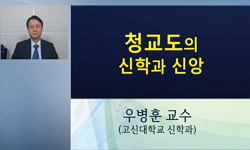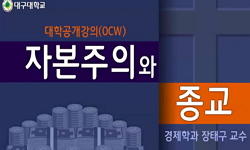본 논문은 한경직의 ‘퓨리턴적 신앙’과 정치의식 및 그 대응 양식을 분석한 것이다. 한경직은 미국 식민 초기 뉴잉글랜드의 퓨리턴 공동체에 영감을 받아 ‘모든 것은 하나님의 영광을 위...
http://chineseinput.net/에서 pinyin(병음)방식으로 중국어를 변환할 수 있습니다.
변환된 중국어를 복사하여 사용하시면 됩니다.
- 中文 을 입력하시려면 zhongwen을 입력하시고 space를누르시면됩니다.
- 北京 을 입력하시려면 beijing을 입력하시고 space를 누르시면 됩니다.

한경직의 ‘퓨리턴적 신앙’과 정치의식 연구 = A Study of Han Kyung-Chik’s ‘Puritan Faith’ and Political Consciousness
한글로보기부가정보
국문 초록 (Abstract)
본 논문은 한경직의 ‘퓨리턴적 신앙’과 정치의식 및 그 대응 양식을 분석한 것이다. 한경직은 미국 식민 초기 뉴잉글랜드의 퓨리턴 공동체에 영감을 받아 ‘모든 것은 하나님의 영광을 위해’라는 강렬한 ‘하나님 중심주의’와 그에 근거해 인간은 하나님이 맡기신 것을 관리하는‘청지기’라는 인간관 그리고 성서가 개인의 신앙과 생활의 중심일 뿐 아니라 사회·정치적 원리가 되어야 한다는 신정 정치적 이상을 가졌다. 그의 이러한 ‘퓨리턴적 신앙’은 개인의 회심과 중생을 담지하는 교회가 중심이 되어 모든 가치와 제도가 파생되며 역으로 그 중심으로 모든 것이 수렴· 환원되는 동심원적 구조를 가지고 있었다. 따라서 ‘기독교적 국가 건설’이라는 그의 정치의식과 행위는 그의 ‘퓨리턴적 신앙’에서 발원하는 정치적 실천이라고 해도 과언이 아니었다.
그가 ‘기독교적 국가 건설’을 위한 구체적 방법으로 생각한 것은 ‘전국민의 기독교화’를 위한 전도와 반공을 축으로 하는 사상전이었다. 이 과정에서 그가 생각한 국가와 기독교의 관계의 모델은 ‘정교분리’가 아니라 기독교가 완전한 종교적 자유를 가지고 국가의 정신적 기초가 되는 ‘미국적 시민 종교’였다. 기독교에 근거한 시민 종교를 가진 퓨리턴적 신정 정치의 국가를 지향한 그의 정치의식과 행동은 군사 정권에 대한 기독교회의 반독재 민주화 운동 등이 전개되는 한국 사회의 정치적 변화 속에서 현실성을 잃는다.
한경직의 사상의 저변에는 개인 하나 하나를 좋은 기독교인으로 만들어 사회에 내어 보내면, 그 사회가 자연스럽게 ‘정의로운 사회’가 될 것이라고 하는 개인주의적 경건주의 기독교 윤리가 자리하고 있다. 이러한 윤리를 신학자 라인홀드 니버(Reinhold Niebuhr)는 그의 명저 『도덕적 인간과 비도덕적 사회』에서 ‘소박한 낙관주의 윤리’라고 비판했다. 이제 한국 개신교는 한경직이 남긴 개인주의적 경건주의라는 ‘소박한 낙관주의’ 를 탈각하고, 무정부적 자유방임주의나 획일적인 독재주의라는 정치적 양극단을 피하면서 개인의 자유와 공동체의 공공선을 가급적 최고 수치의 근사치로 실현해 가기 위한 기독교 사회 윤리와 행동을 모색해야 할 것이다.
다국어 초록 (Multilingual Abstract)
This article examines the intertwining of Rev. Kyung-Chik Han’s “Puritan faith” and his political consciousness. Inspired by the early Puritan communities in New England, Han embraced an intense “God-centerism,” asserting that “all things ...
This article examines the intertwining of Rev. Kyung-Chik Han’s “Puritan faith” and his political consciousness. Inspired by the early Puritan communities in New England, Han embraced an intense “God-centerism,” asserting that “all things are for the glory of God.” Based on this belief, he viewed human beings as “stewards” entrusted with managing God’s creation. He advocated for a theocratic ideal, contending that the Holy Bible should not only be the focal point of individuals’ religious and daily lives but also serve as the solid foundation for social and political order. At the core of his “Puritan faith” was the church, functioning as the center for individual conversion and rebirth, as well as the source of all values and institutions. The sociopolitical realm, in turn, was meant to be oriented towards the church, creating a concentric structure.
Therefore, it is reasonable to argue that his political consciousness and actions aimed at “building a Christian nation” were derived from his “Puritan faith.” In implementing the specific methods for “building a Christian nation,” Han considered evangelism for the “Christianization of the whole nation” and engaged in anti-communist ideological warfare. His vision for the relationship between the state and Christianity did not align with the separation of church and state; instead, he advocated for an “American civil religion,” where Christianity would serve as the spiritual foundation of the nation alongside full-fledged religious freedom. However, Han’s Puritan theocratical statism encountered opposition from the democratization movement which opposed the military dictatorship in South Korea.
Underlying Kyung-Chik Han’s thought is an individualistic, pietistic Christian ethic that assumes that if each individual becomes a good Christian and participates in society, it will naturally become a “just” society. This ethic was criticized by theologian Reinhold Niebuhr in his classic, “Moral Man and Immoral Society,” as naive optimism. Now, Korean Protestantism needs to move away from the naive optimism of individualistic pietism for which Han advocated and avoid the political polarization of anarchic laissez-faire or monolithic authoritarianism. The Korean church should seek a Christian social ethic and action that best realizes individual freedom and the common good of the community.
동일학술지(권/호) 다른 논문
-
WCC의 “디지털 정의” 대한 기독교윤리학적 담론 이해
- 한신대학교 신학사상연구소
- 이국헌(Kuk-Heon Lee)
- 2024
- KCI등재
-
- 한신대학교 신학사상연구소
- 서기태(Ki-Tae Seo)
- 2024
- KCI등재
-
- 한신대학교 신학사상연구소
- 김동열(Dong-Yeol Kim)
- 2024
- KCI등재
-
- 한신대학교 신학사상연구소
- 김영인(Young-In Kim)
- 2024
- KCI등재




 KCI
KCI 스콜라
스콜라



